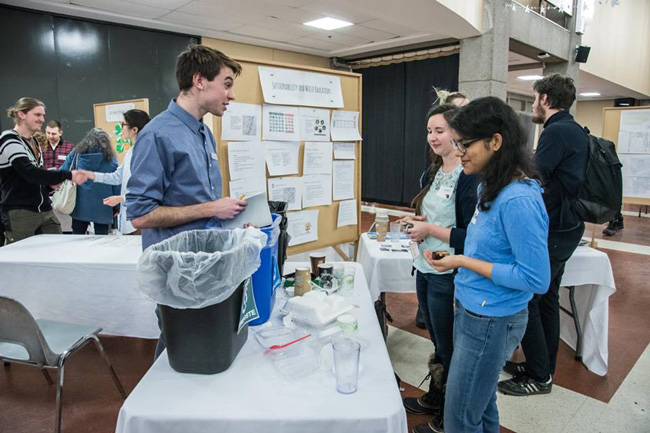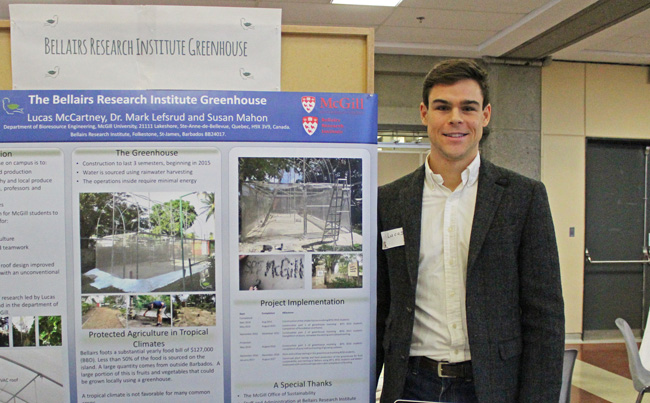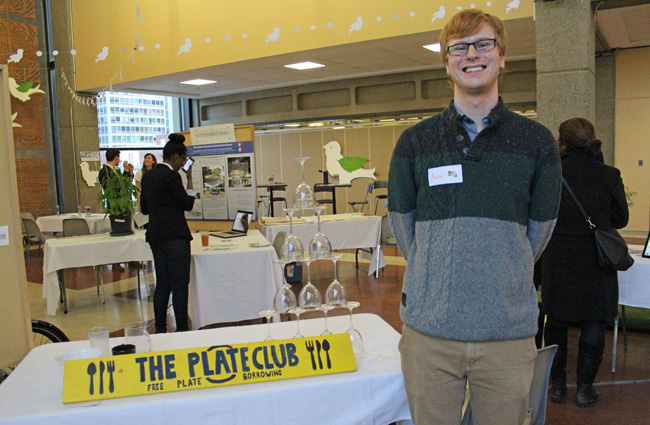
By Neale McDevitt
If someone needed a status update on the state of sustainability efforts at McGill, even a quick walkthrough the Sustainability Projects Showcase on Feb. 9, would tell them all they need to know. People here are keen for green.
Held in the SSMU Ballroom, the Showcase highlighted a dozen or so projects funded by McGill’s Sustainability Projects Fund (SPF), emphasizing the initiative’s incredible scope and diversity.
Founded in 2009, the SPF is a model of collaboration between McGill students and administration. That year, students voted to allot a $0.50 per credit fee, which was matched dollar-for-dollar by the administration, to form one of the largest sustainability funds in North America.
To date, the $840,000-per-year program has supported more than 150 unique sustainability initiatives across both McGill campuses – and even at the university’s Bellairs Research Institute in Folkestone, Barbados.

The Bellairs Research Institute Greenhouse project involves the construction of a sustainable tropical greenhouse onsite. This greenhouse will be used to produce fruits, vegetables and other native edible plants for use in food production at the Institute, which hosts many students and scientists from McGill and around the world for field courses, workshops and research projects.
“The greenhouse project allows students to learn about greenhouse design and protected agriculture in the tropics – and they get to help in the actual construction,” says Lucas McCartney, a Ph.D. student in Bioresource Engineering at the Macdonald Campus. “By the end of it – which should be fall 2016 – the greenhouse will be able to supply food for the people who stay at the Institute in the fall and the summer. This will provide produce like tomatoes, pepper and lettuce – vegetables that wouldn’t normally grow in a very hot and sunny environment like Barbados.”

Significantly more local in scope than the Bellairs’ greenhouse is the Plate Club, an initiative that offers free use of quality reusable dishware and utensils in place of disposable, typically paper or Styrofoam, items for events such as banquets and dinners.
“We have everything from platters and wine glasses to utensils and coffee mugs,” says Aidan Gilchrist-Blackwood, a U2 student in Political Science and History. “And we can handle small events and very large ones, including ones with 500 or more people.
“Obviously, our approach to sustainability focuses more on a micro level than some other SPF projects, but the Plate Club has had a real impact” says Gilchrist-Blackwood. “In the past five years we have diverted over 60,000 items from landfill.”
Learn more about the Sustainability Projects Fund
